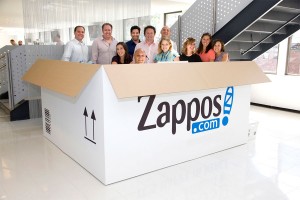We have not gone into this topic with any great detail in Commerce 101, but I believe my classmates and I are all currently enrolled in Principles of Microeconomics; so for any of us who have managed to attend a lecture here or there the subject of government intervention in business may have come up. In economics class it was mainly discussed using the example of price floors and ceilings, and we discussed how this would affect the overall market as well as the suppliers and consumers. The whole thing is a rather controversial topic, as many possess very strong opinions regarding what the role of government in business should resemble. It can in some cases be considered a positive thing, like the federal pricing laws on alcohol or high cigarette taxing, but an argument for the other side can always be made.
The newsworthy topic on this front at the moment is the United States’ net neutrality debate; which is, in essence, a fight between internet service providers and the U.S. Federal Communications Commission. Currently the ISPs are wanting to have control over the relative quality of service allotted to different forms of traffic, while President Obama is insisting on a “net neutrality” that restricts said providers from giving anyone preferential treatment based on how much they are able to pay. This particular conflict is yet to be resolved, and a case can be made for both sides. It has yet to spill over into Canada however, namely due to the Telecommunications Act which “bars carriers from unjustly discriminating against any person or giving anyone – including themselves – an undue advantage” (http://www.theglobeandmail.com/technology/internet-video-viewers-wont-see-a-fast-lane-any-time-soon/article21543500/).
Whatever conclusion this debate reaches, its very existence serves as a reminder to not take anything for granted. Take a moment right now and attempt to imagine your life without the ever-present internet. Exactly. Now who says current events aren’t applicable to everyone?










